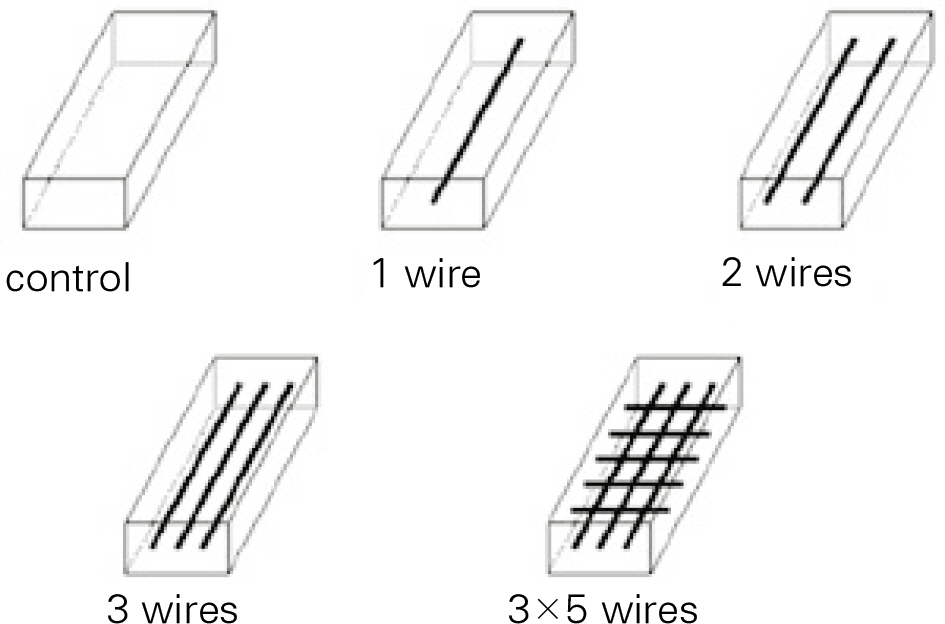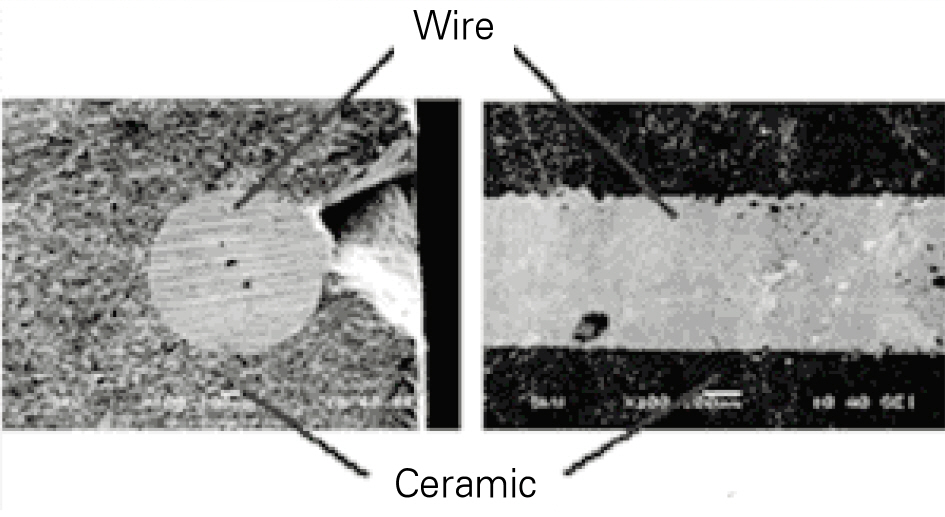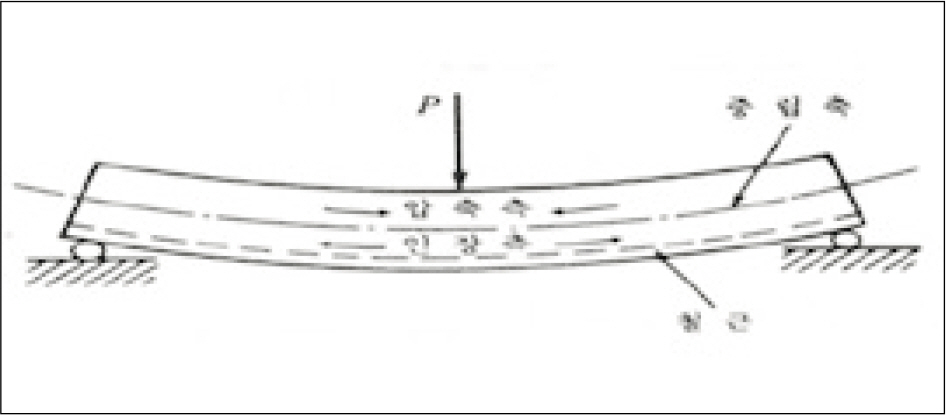J Korean Acad Prosthodont.
2009 Apr;47(2):191-198. 10.4047/jkap.2009.47.2.191.
The fracture resistance of heat pressed ceramics with wire reinforcement
- Affiliations
-
- 1Department of Prosthodontics, College of Dentistry, Wonkwang University, Korea. dong@wku.ac.kr
- KMID: 2195616
- DOI: http://doi.org/10.4047/jkap.2009.47.2.191
Abstract
- STATEMENT OF PROBLEM: Ceramics have been important materials for the restoration of teeth. The demands of patients for tooth-colored restorations and the availability of various dental ceramics has driven the increased use of new types of dental ceramic materials. Improved physical properties of theses materials have expanded its use even in posterior crowns and fixed partial dentures. However, ceramic still has limitation such as low loading capability. This is critical for long-span bridge, because bridge is more subject to tensile force. PURPOSE: The wire reinforced ceramic was designed to increase the fracture resistance of ceramic restoration. The purpose of this study was to evaluate the fracture resistance of wire reinforced ceramic. MATERIAL AND METHODS: Heat pressed ceramic (ingot No.200 : IPS Empress 2, Ivoclar Vivadent, Liechtenstein) and Ni-Cr wire (Alfa Aesar, Johnson Matthey Company, USA) of 0.41 mm diameter were used in this study. Five groups of twelve uniform sized ceramic specimens (width 4 mm, thickness 2 mm, length 15 mm) were fabricated. Each group had different wire arrangement. Wireless ceramic was used as control group. The experimental groups were divided according to wire number and position. One, two and three strands of wires were positioned on the longitudinal axis of specimen. In another experimental group, three strands of wires positioned on the longitudinal axis and five strands of wires positioned on the transverse axis. Three-point bending test was done with universal testing machine (Z020, Zwick, Germany) to compare the flexural modulus, flexural strength, strain at fracture and fracture toughness of each group. Fractured ceramic specimens were cross-sectioned with caborundum disc and grinded with sandpaper to observe interface between ceramic and Ni-Cr wire. The interface between ceramic and Ni-Cr wire was analyzed with scanning electron microscope (JSM-6360, JEOL, Japan) under platinum coating. RESULTS: The results obtained were as follows: 1. The average and standard deviation in flexural modulus, flexural strength and fracture toughness showed no statistical differences between control and experimental groups. However, strain was significantly increased in wire inserted ceramics (P < .001). 2. Control group showed wedge fracture aspects across specimen, while experimental groups showed cracks across specimen. 3. Scanning electron microscopic image of cross-sectioned and longitudinally-sectioned specimens showed no gap at the interface between ceramic and Ni-Cr wire. CONCLUSION: The results of this study showed that wire inserted ceramics have a high strain characteristic. However, wire inserted ceramics was not enough to use at posterior area of mouth in relation to flexural modulus and flexural strength. Therefore, we need further studies.
MeSH Terms
-
Acrylic Resins
Axis, Cervical Vertebra
Ceramics
Collodion
Composite Resins
Crowns
Denture, Partial, Fixed
Electrons
Hot Temperature
Humans
Lithium Compounds
Mouth
Platinum
Polyurethanes
Reinforcement (Psychology)
Sprains and Strains
Tooth
Waxes
Acrylic Resins
Ceramics
Collodion
Composite Resins
Lithium Compounds
Platinum
Polyurethanes
Waxes
Figure
Reference
-
1.Schweiger M., Hoeland W., Frank M., Drescher H., Rheinberger V. IPS Empress 2: A New Pressable High strength Glass-Ceramic for Esthetic All-Ceramic Restorations. Quint Dent Technol. 1999. 18:143–51.2.Kim DJ., Han JS. Ceramic materials for dental restoration. J Korean Ceram Soc. 1995. 10:411–17.3.Seghi RR., Sorensen JA. Relative flexural strength of six new ceramic materials. Int J Prosthodont. 1995. 8:239–46.4.Shimizu K., Oka M., Kumar P., Kotoura Y., Yamamuro T., Makinouchi K., Nakamura T. Time-dependent changes in the mechanical properties of zirconia ceramic. J Biomed Mater Res. 1993. 27:729–34.
Article5.Guazzato M., Albakry M., Swain MV., Ironside J. Mechanical properties of In-Ceram Alumina and In-Ceram Zirconia. Int J Prosthodont. 2002. 15:339–46.6.McLaren EA., White SN. Glass-infiltrated zirconia/alumi-na-based ceramic for crowns and fixed partial dentures. Pract Periodontics Aesthet Dent. 1999. 11:985–94.7.Tinschert J., Zwez D., Marx R., Anusavice KJ. Structural reliability of alumina-, feldspar-, leucite-, mica- and zirconia-based ceramics. J Dent. 2000. 28:529–35.
Article8.Lawn BR., Deng Y., Lloyd IK., Janal MN., Rekow ED., Thompson VP. Materials design of ceramic-based layer structures for crowns. J Dent Res. 2002. 81:433–8.9.Craig RG. Restorative Dental Materials,. 6th ed.C. V. Mosby, St. Louis, MO;1980. p. 60–1.10.Kelly JR. Clinically relevant approach to failure testing of all-ceramic restorations. J Prosthet Dent. 1999. 81:652–61.
Article11.Tinschert J., Natt G., Mautsch W., Spiekermann H., Anusavice KJ. Marginal fit of alumina-and zirconia-based fixed partial dentures produced by a CAD/CAM system. Oper Dent. 2001. 26:367–74.12.Bindl A., Mo ¨rmann WH. Marginal and internal fit of all-ceramic CAD/CAM crown-copings on chamfer preparations. J Oral Rehabil. 2005. 32:441–7.
Article13.Kokubo Y., Nagayama Y., Tsumita M., Ohkubo C., Fukushima S., Vult von Steyern P. Clinical marginal and internal gaps of In-Ceram crowns fabricated using the GN-I system. J Oral Rehabil. 2005. 32:753–8.
Article14.Dong JK. Dental bridge used with wire reinforced ceramic. Korean Patent. The Industrial Property Office. 2005.15.Dong JK., Luthy H., Wohlwend A., Scha ¨rer P. Heat-pressed ceramics: technology and strength. Int J Prosthodont. 1992. 5:9–16.16.Cattell MJ., Knowles JC., Clarke RL., Lynch E. The biaxial flexural strength of two pressable ceramic systems. J Dent. 1999. 27:183–96.
Article17.Fischer H., Scha ¨fer M., Marx R. Effect of surface roughness on flexural strength of veneer ceramics. J Dent Res. 2003. 82:972–5.
Article18.Albakry M., Guazzato M., Swain MV. Effect of sandblasting, grinding, polishing and glazing on the flexural strength of two pressable all-ceramic dental materials. J Dent. 2004. 32:91–9.
Article19.Kang HJ., Dong JK., Oh SC., Lee HH., Song KC. A study on the stress distribution of posterior fixed partial denture with various all-ceramic systems. J Korean Acad Prosthodont. 2005. 43:204–17.20.Fischer H., Weber M., Marx R. Lifetime prediction of all-ceramic bridges by computational methods. J Dent Res. 2003. 82:238–42.
Article21.Kelly JR., Giordano R., Pober R., Cima MJ. Fracture surface analysis of dental ceramics: clinically failed restorations. Int J Prosthodont. 1990. 3:430–40.22.Anusavice KJ., Hojjatie B. Tensile stress in glass-ceramic crowns: effect of flaws and cement voids. Int J Prosthodont. 1992. 5:351–8.23.Fairhurst CW., Lockwood PE., Ringle RD., Twiggs SW. Dynamic fatigue of feldspathic porcelain. Dent Mater. 1993. 9:269–7.
Article24.Green DJ. An introduction to the mechanical properties of ceramics. 1998. Cambridge: Cambridge University Press.25.Marx R., Fischer H., Weber M., Jungwirth F. Crack parameters and Weibull moduli: subcritical crack growth and longterm durability of all-ceramic materials. Dtsch Zahna ¨ztlZ. 2001. 56:90–8.26.Guazzato M., Albakry M., Ringer SP., Swain MV. Strength, fracture toughness and microstructure of a selection of all-ceramic materials. Part I. Pressable and alumina glass-infiltrated ceramics. Dent Mater. 2004. 20:441–8.
Article27.Kim SR., Kim WS., Lee IK., Dong JK. The change of wire according to the heat pressing of ceramic in wire-reinforced ceramics. J Korean Acad Stoma Occ. 2006. 22:1–10.28.Schweitzer DM., Goldstein GR., Ricci JL., Silva NR., Hittelman EL. Comparison of bond strength of a pressed ceramic fused to metal versus feldspathic porcelain fused to metal. J Prosthodont. 2005. 14:239–47.
Article
- Full Text Links
- Actions
-
Cited
- CITED
-
- Close
- Share
- Similar articles
-
- The physical properties of reused IPS empress ceramic part IV: Hardness and fracture toughness
- A STUDY ON THE FLEXURAL STRENGH OF HEAT-PRESSED CERAMICS ACCORDING TO SPRUE DESIGNS
- An in-vitro wear study of human enamel opposing heat-pressed ceramics
- PHYSICAL PROPERTIES OF THE REUSED IPS EMPRESS CERAMIC PART III. STUDY ON THE STAIN RESISTANCE
- Fracture resistance of ceramic brackets to arch wire torsional force







